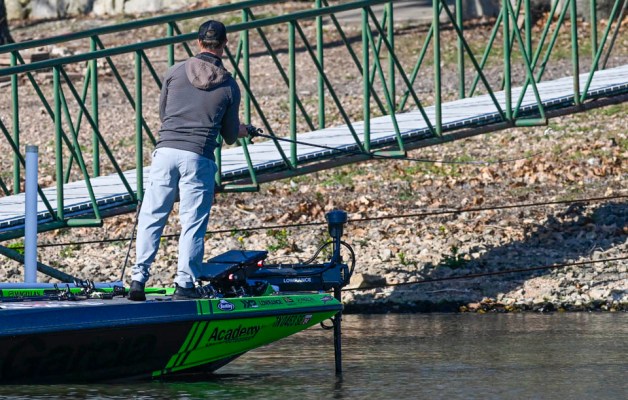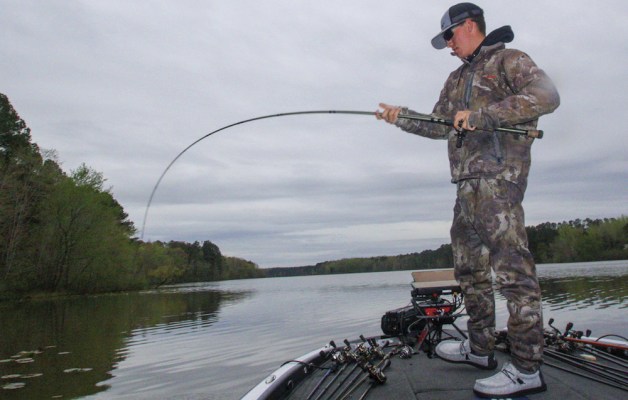
Just about every angler, whether an Elite Series pro or a weekend warrior, can think of at least one lake that has his number. When that fishery shows up again and again on the schedule, about all you can do is grit your teeth and endure eight or nine painful hours on the water. But it doesn't have to be that way, says Toyota Tundra pro Terry Scroggins.
He cites a recent top finish at Lake Wheeler, Ala., one of the nemeses of his past. He has clear-cut strategies for approaching lakes where he's done poorly in previous visits there. "I've always struggled here in the past," he says about Wheeler. "Guntersville is the next pool up, and that's one of my favorite fisheries, but I always seem to struggle at Wheeler. I was getting 50 to 60 bites during practice, but they were all small."
That led him to explore areas and depths that were previously outside his comfort zone. "I tried fishing 25 to 30 feet deep that week — deeper than I had ever fished there before. I just kept looking and looking and looking during practice, until I found some big schools out there." Embedded in that last statement is his key piece of advice to anglers who have to go to lakes they don't like, or where they've done poorly in the past. "If you've always done poorly there, then make up your mind never to go back and duplicate the same areas," he says. "Fish are not that smart.
Eventually you'll figure them out, and then you won't be able to understand why you couldn't figure them out before. It's pretty simple once you know what they're doing." Oddly enough, it may be easier to follow that advice if you've had zero success on a lake in the past. But if you've experienced occasional success there, that presents a challenge.
"When people catch them really well, a lot of times they get hung up on an area," Scroggins believes. "It's a lot easier when you haven't had much success on a lake. You can't get hung up on the past if the past wasn't very good. Remember that every fishery changes. Patterns change and fish change. You need to keep your head up, fish hard and fish new places. "A lot of it's physical. Some of the weekend anglers are too one-dimensional.
They get stuck in the rut of fishing shallow water or fishing certain baits. An Elite Series angler can't afford to get hung up on one thing. When we see something, some clue to what the fish are doing, we try to get on the right bait and go with it." Ultimately, his advice is just common sense: "If something's not working, you need to change and do something totally different." It sounds simple, but putting it into action requires a shift away from the mindset of disliking a lake toward an attitude that embraces the challenge of figuring out a new puzzle.
Scroggins put that plan into action when he finished third at Wheeler. A good attitude plus good skills were the keys to solving the puzzle.
(Provided by Z3 Media)





